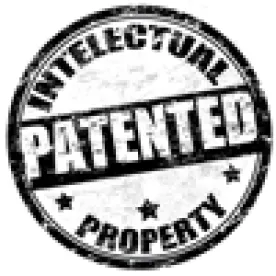Takeaway: The Board will likely deny a motion to compel additional discovery that seeks production of inconsistent statements that are already subject to routine discovery.
In its Order, the Board denied Petitioner’s Motion to Compel Additional Discovery. The burden is on Petitioner as the moving party to demonstrate entitlement to the relief requested. In particular, Petitioner “must show that such additional discovery is in the interests of justice.” The Board considers the following factors: “(1) the request is based on more than a mere possibility of finding something useful; (2) the request does not seek the litigation positions of the other party; (3) the information is not reasonably available through other means; (4) the request is easily understandable; and (5) the request is not overly burdensome to answer.”
Petitioner sought the following documents: 1) an email to Tina Sampalis regarding the CaPre product; 2) the deposition transcript of Tina Sampalis; 3) Report on NKO; and 4) deposition transcript and deposition Exhibits 4 and 5 of Pierre St-Jean. Petitioner argued that the requested documents contradict Patent Owner’s position with respect to a reference cited in an anticipation ground of unpatentability.
With respect to the requested email, Petitioner argued that the email included testing data that contradicted Patent Owner’s position. The Board, however, agreed with Patent Owner that the testing data involved a commercial product, and that Petitioner had not established the data’s relevance to the prior art. The Board also agreed with Patent Owner that Petitioner could conduct its own experiments to generate the requested data. Thus, the first request was not in the interests of justice.
Regarding the deposition transcript for Ms. Sampalis, the Board found the primary reason for the request to be Petitioner’s allegation that the deposition contained testimony inconsistent with positions taken in the instant proceeding. Patent Owner argued that the testimony contains confidential business information, concerns irrelevant commercial manufacturing information, and that Petitioner’s experts could also provide the same information sought. The Board held that Patent Owner was already obligated, as part of its routine discovery, to produce non-privileged testimony that is inconsistent with positions taken in the proceeding. “The fact that the information may be business confidential, however, does not shield it from routine discovery.” Because the only reason for the request was based on alleged inconsistent testimony, the Board declined to compel production of the transcript.
Turning to the requested NKO Report, Petitioner argued that the report contains data inconsistent with Patent Owner’s claim construction position. The Board agreed with Patent Owner that claim construction is a question of law on which the study would have no bearing. Thus, Petitioner did not demonstrate the discovery would be in the interest of justice.
Finally, turning to the deposition transcript of Mr. St-Jean and related exhibits, Petitioner argued the documents contain information contradicting Patent Owner’s position that the prior art process would not result in the claimed invention. The Board declined to compel production of the documents because they allegedly contain inconsistent statements that are subject to routine discovery.
Aker Biomarine AS and Enzymotec Ltd. and Enzymotec USA, Inc. v. Neptune Technologies and Bioressources Inc., IPR2014-00003
Paper 93: Order Denying Petitioner’s Motion to Compel Additional Discovery
Dated: October 6, 2014
Patent: 8,278,351 B2
Before: Lora M. Green, Jacqueline Wright Bonilla, and Sheridan K. Snedden
Written by: Green



 />i
/>i

